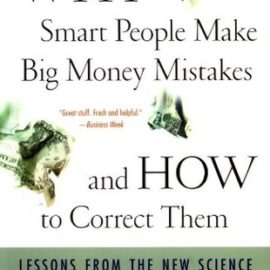Disclosure: I may earn affiliate revenue or commissions if you purchase products from links on my website. The prospect of compensation does not influence what I write about or how my posts are structured. The vast majority of articles on my website do not contain any affiliate links.
A few weeks ago, I had the opportunity to attend a Lehigh Class of 2022 sendoff event in the Chicago suburbs. Two of my fraternity brothers who were interning in the city were able to join me, so we were feeling quite jovial as we started on the hour-long journey.
The event was small, as you’d expect any event in the midwest would be for a school primarily attended by students from the tri-state area. However, I enjoyed meeting an assortment of parents, alumni, students, and incoming students. There was also free food and drinks.
In rehearsing for this event, which I did briefly, and which I do prior to all meetings in which practicing can help me perform better, I thought about a very simple question: what did I wish I knew before heading to Lehigh? Further, what did I wish I knew before selecting Lehigh?
As I thought more and more, I realized that nearly every tangent boiled down to one central question. How easy would it be to get a great job and pursue a path of greatness throughout my career?
In high school, I tore through books that provided information about colleges. There are common stats: average SAT score of the incoming class, average employment percentage of the graduating class, average starting salary, top employers, and many others. You’d think that these things are directly correlated to the hardworking student’s ability to get an interview at a prestigious firm. You would be wrong.
One of the greatest inconsistencies still affecting the college admission process is that students rarely have any idea about the employment environment at their schools of choice. What companies go to the career fair and recruit for positions you want? Does a 3.6 GPA in a certain major basically guarantee interviews with certain companies? What’s available as a freshman? How hard will you have to work to get the same opportunities available to those at more prestigious schools?
Full-time employment is still so far away when you’re still in high school. It’s easy to visit a college, hear professors tell you that people get jobs at “top” firms, have extroverted students tell you about how awesome their internships were, and never give it another thought. You simply recalibrate and prepare to put your head down so you can get a good job. It’s not that simple and I suspect this is one of the highest sources of misery for high-achieving college students who don’t attend high-achieving colleges. What I hope to highlight with this blog post is that, if you don’t go to a “target” school, you may have to work harder than you ever thought possible just to get an interview with the company of your dreams.
Maybe this post really should be titled “complaints from people who went to second-tier schools.”
Prestige is a factor in deciding what college to apply to and which to attend. However, the “general” or, “historical” ( or, if we’re being honest “sporting”) prestige as measured by a family member or individual seeking higher education may be distinct from an employer’s take. For example, Villanova is widely regarded as a great school. Not an elite school, but a great one. However, being a top performer in Villanova’s business school opens a lot of doors on Wall Street.
Lehigh was, and still is, a solid second-tier school. The problem with the way college admissions works now (especially for private schools), is that everybody is led to believe that they are unique and special and–even if not remotely true–studying somewhere prestigious. The trope of the liberal arts major who can’t find a job has been overdone. What about the Mechanical Engineer graduating with a 3.7? I had many friends who worked their asses off in college, achieved respectable GPAs in hard majors, and are underemployed to this day. This isn’t as much of a knock on Lehigh as it is more of a wake-up call for prospective students in general. Perhaps a tangent to explore another time, but STEM degrees outside of Computer Science don’t always lead to the bright future imagined while pulling all-nighters. I think it’s a travesty.
I want to focus on Computer Science because that’s what I know. I visited Lehigh and Drexel in a short span of time. What was immediately obvious was that the profile of the typical Lehigh student was drastically different from Drexel’s and I felt much more at home there. Further, while Drexel was big on experiential learning (mandating co-ops and being on a trimester schedule), Lehigh was much more traditional. The Drexel Computer Science students we spoke with seemed to have jobs, but at random companies in Philly that I had never heard of. Lehigh’s student reps were much more confident speakers and talked of companies that at least my parents knew. The real differentiator was that the head of the program that I ended up studying at Lehigh gave a powerful testimony to new grad performance, including mentioning that students went on to get top jobs in both the business realm and tech. I have never forgotten those words.
As I was working hard as a freshman, on my way to a 4.0 major GPA and a high cumulative average, employers universally brushed me aside both at networking events and at career fairs. My messages were probably overeager, and I can understand that now, but nobody even answered my emails. Attending the fall career fair was ambitious, people would later tell me, but I can’t help but wonder if people at Ivy League schools had the same attitude (I’m being facetious. I had friends who went to Ivy League schools, and there were opportunities available to freshmen). I was acing my Computer Science courses, was a competent web developer, was willing to work for free, and knew I just needed a chance. Wasn’t the whole point of paying for a small private school over a reputable state school to have a greater chance of someone being willing to take a chance on you?
Sophomore year started. I’d like to think that I firmly established myself in the upper echelon of students in my major. I took back-to-back eighteen credit semesters. I was once again brushed aside by employers. Applications were never answered. A few emails were answered but superficially. Nobody was willing to give me a chance. At that point, it was hard not to wonder what the hell I was doing wrong. Great school, right? Most in-demand major in the world, right? Through a stroke of luck, I finagled an unpaid internship at a local startup in my hometown. The whole thing was demotivating.
Entering my junior year, I was a teaching assistant for several classes. I had a wonderful recommendation from my boss. Suddenly, there were on-campus recruitment options. So, no, the purpose of this post isn’t to air out some deep-seeded dissatisfaction with Lehigh. Microsoft interviewed on campus. I was one of five people to get a Google phone interview. I made it to onsite interviews for PwC Technology Consulting in NYC and Lockheed Martin at a top-secret location. I received an offer from Chase’s back office team in Delaware after interviewing just once. I ended up taking something else entirely, received and accepted the full-time offer, and here I am. It was validating to have certain opportunities, but I can’t help but wonder how much more motivated I would have been and how much more I would have achieved had there been an abundance of competitive internships. Frankly, my peers and I felt so underprepared for interviews, that when we did get the “big” ones (Google, Microsoft) we performed embarrassingly compared to peers at schools where pursuing such employers is commonplace.
Meanwhile, my friends in the business school were floundering. The accounting majors happily found employment with the Big Four, but everyone hoping to work on Wall Street had a hard time. I understand that this is a near-universal goal amongst Finance people: find an internship in a front-office role. It just happened to be very difficult for my friends at Lehigh. These were friends in honors programs with dual majors in STEM fields and incredibly high GPAs. When it came time to visit the career fair, there were–seriously–commission-only sales jobs masqueraded as high Finance roles. Such employers would have been laughed out of a UMich or NYU career fair, but we let them in. There were a couple S&T roles floating around, but pickings were slim.
Okay, so the lesson is that if you want employers to bend over backward for you, just go to Princeton, right? The point I’m trying to make is counter-intuitive and hard to swallow–that many of my peers would have been better off attending Penn State.
Many people would consider Penn State to be a less prestigious school than Lehigh. Lehigh only let in 22% of applicants this year! However, Penn State provides a pipeline for hardworking business students to make it to desirable jobs on Wall Street. Lehigh, when I attended, offered no guarantees and left many Finance and Economics graduates in purgatory. The merit of Penn State’s business program is infrequently debated on sites such as Wall Street Oasis, but at least it’s on the map. Whenever people mention Lehigh, they’re usually talking about the strength of the alumni network and how alumni respond positively to undergraduates showcasing high achievement and grit. Unfortunately, this tendency hadn’t trickled down to the career fair or jobs portal by the time I graduated.
Prospective college students looking to gain employment in competitive industries need to do more research into what firms consider schools “targets” and how that may end up affecting their undergraduate journey. The availability of such opportunities may be wholly inconsistent with an individual’s perception of the prestige of a course of study. Maybe I exacerbated the issue I faced by not honestly disclosing this to the incoming students I met, but, in the end, I turned out just fine.





Pingback: Computer Science and Business (CSB) at Lehigh University (and alternatives) | Tim O'Hearn()